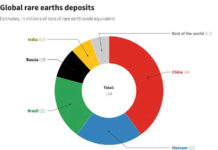On the afternoon of October 10, 2025, within the framework of the 2nd Vietnam International Trade Forum (VFIT), Foreign Trade University held the Press Release Ceremony of the Vietnam International Trade Report 2025 – an in-depth publication that provides a comprehensive overview of the new drivers for trade growth in Viet Nam’s era of national rising.
 The event served as an opportunity for the Editorial Team to present to the academia, experts, representatives of state agencies, businesses, media agencies, and domestic and international organizations the core content of the Report, which embodies scientific and practical arguments on the new drivers of Vietnam’s international trade growth.
The event served as an opportunity for the Editorial Team to present to the academia, experts, representatives of state agencies, businesses, media agencies, and domestic and international organizations the core content of the Report, which embodies scientific and practical arguments on the new drivers of Vietnam’s international trade growth.

The Vietnam International Trade Report 2025 is built upon in-depth research and analysis of four new growth drivers, including: new-generation Free Trade Agreements – the institutional foundation for comprehensive integration; Digital Trade – the technological driver for breakthroughs and innovation; Sustainable Trade – the normative driver enabling Viet Nam to secure a stronger position in the global market; and Global Value Chains – the structural driver that elevates Viet Nam’s position in the global value chain.
The Report also proposes a comprehensive, synchronized, and multi-layered action strategy, emphasizing the need for close coordination among the “State as Constructors – Enterprises at the Core – Universities as Connectors.” This synergy is expected to help Viet Nam transform external drivers into endogenous advantages, foster sustainable international trade development, and enhance the country’s position in the global arena.
In her opening remarks at the Press Release Ceremony, Assoc. Prof. Dr. Pham Thu Huong, President of Foreign Trade University, emphasized: “The Vietnam International Trade Report 2025 was developed with the aim of identifying and providing in-depth analysis of four new cross-cutting growth drivers — emerging from global trends but materialized and coordinated at the national and business levels.”
She further noted that the Report puts forward a comprehensive, synchronized, and multi-layered action strategy, calling for strong collaboration among the State, the business community, and universities to transform external drivers into internal strengths, enabling Viet Nam to make breakthroughs and affirm its position as a high-value link in international trade in the new era.
Amid profound global shifts toward green transition, digital transformation, and supply chain restructuring, the Vietnam International Trade Report 2025 offers a fresh, comprehensive, and in-depth perspective on Viet Nam’s international trade development journey. The Report reflects the outcomes of rigorous academic collaboration, active engagement from the academia, state management agencies, and businesses. It also stands as a testament to Foreign Trade University’s pioneering role in connecting knowledge and policy for national development.

Assoc. Prof. Dr. Pham Thu Huong expressed that this Report would serve as a valuable reference source for policymakers, businesses, scholars, and the media in strategic planning, market expansion, and enhancing national competitiveness in the new era.
At the event, Assoc. Prof. Dr. Dao Ngoc Tien, Vice President of Foreign Trade University, presented the key contents of the Vietnam International Trade Report 2025. The Report consists of five chapters, built on a well-structured framework and a strategic vision.
The introductory chapter provides an overview of the new growth drivers and highlights the importance of close coordination among the State as Constructors, Enterprises at the Core, and Universities as Connectors — the three pillars that form Viet Nam’s integration capacity.
The four subsequent chapters offer in-depth analysis of the core drivers for Viet Nam’s international trade in this era of national rising, including new-generation free trade agreements, digital trade, sustainable trade, and global value chains. Each topic is approached from an innovative perspective, aiming to shed light on Viet Nam’s pathways to advance within global value chains and to strengthen its position in modern international trade.

The ceremony concluded with insightful discussions, feedback, and suggestions for further development of the Report from experts representing state management agencies, research institutes, and the business community.

The discussion session featured many valuable insights and contributions from participating delegates. Dr. Luong Van Khoi, Deputy Director General of the Institute for Policy and Strategic Studies, Central Commission for Policy and Strategy, highly appreciated the quality, practicality, and information richness of the Report. He recommended that the author team prepare a policy proposal to be submitted to key state management bodies such as the National Assembly, the Government, and relevant ministries and agencies, in order to amplify the Report’s strategic value and enhance its applicability in policymaking practice.

In addition, Assoc. Prof. Dr. Bui Van Huyen, Director of the Institute of Socio-Economic and Environmental Studies, Ho Chi Minh National Academy of Politics, suggested a future development direction for the Report. He proposed that each annual edition focus on an in-depth analysis of a specific theme to enhance the depth of research and strengthen its policy impact.

From the business community’s perspective, Dr. Luong Minh Huan, Director General of the Enterprise Development Foundation under the Vietnam Chamber of Commerce and Industry (VCCI), highly valued the policy recommendations accompanied by concrete solutions, which can help enterprises transform new growth drivers into internal capabilities, enhance competitiveness, and expand into international markets. He also emphasized the importance of fostering leading enterprises to enable Viet Nam to rise more strongly in global trade.


All contributions reaffirmed the academic credibility of the Report and its strong potential to make a meaningful contribution to Viet Nam’s international trade strategy formulation process.






